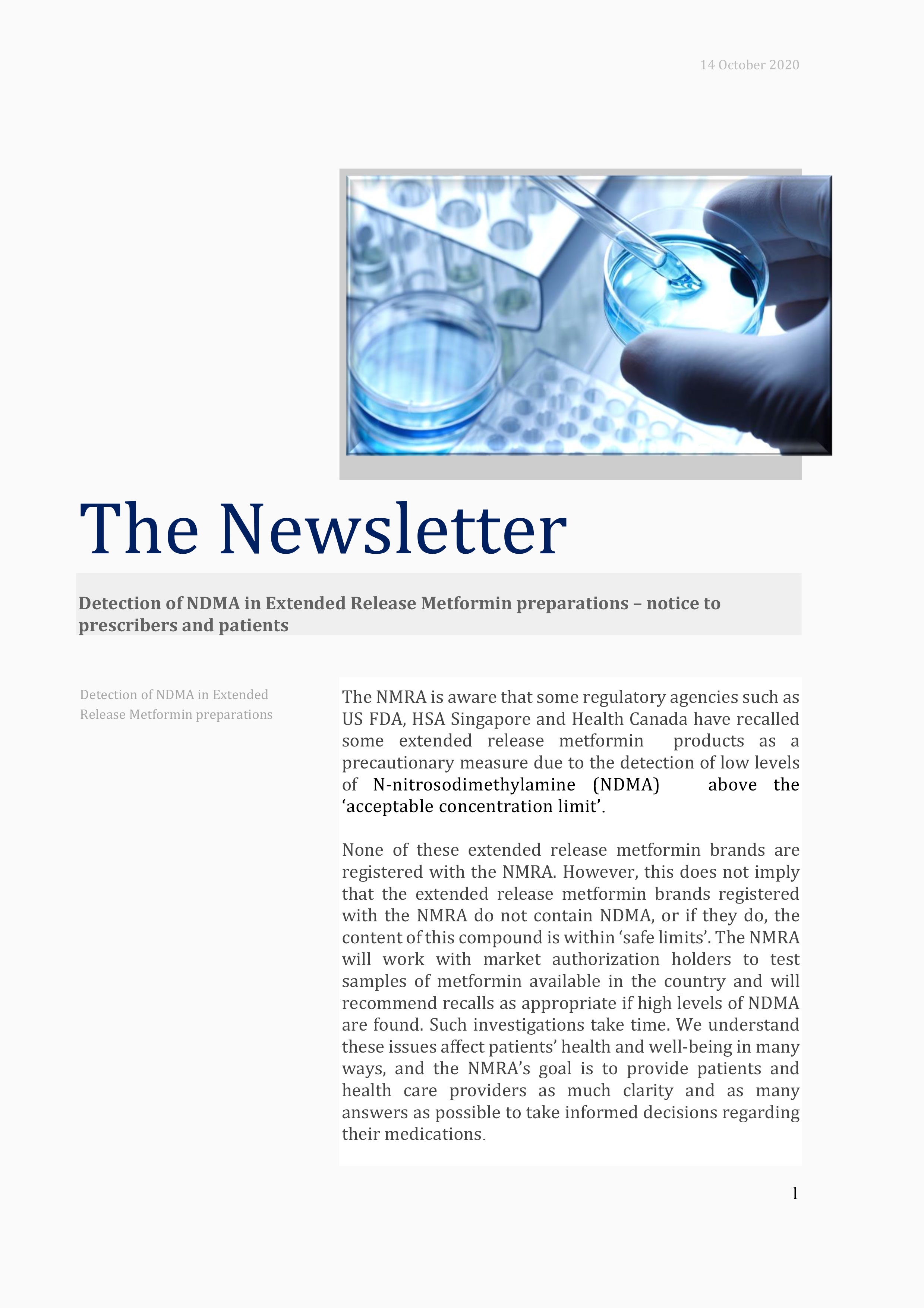Detection of NDMA in Extended Release Metformin preparations – notice to prescribers and patients
The NMRA is aware that some regulatory agencies such as US FDA, HSA Singapore and Health Canada have recalled some extended release metformin products as a precautionary measure due to the detection of low levels of N-nitrosodimethylamine (NDMA) above the ‘acceptable concentration limit’.
None of these extended release metformin brands are registered with the NMRA. However, this does not imply that the extended release metformin brands registered with the NMRA do not contain NDMA, or if they do, the content of this compound is within ‘safe limits’. The NMRA will work with market authorization holders to test samples of metformin available in the country and will recommend recalls as appropriate if high levels of NDMA are found. Such investigations take time. We understand these issues affect patients’ health and well-being in many ways, and the NMRA’s goal is to provide patients and health care providers as much clarity and as many answers as possible to take informed decisions regarding their medications.
Metformin is a prescription drug used to control high blood sugar in patients with type 2 diabetes. Patients should continue taking metformin to keep their diabetes under control. It could be dangerous for patients with this serious condition to stop taking their metformin without first talking to their physicians. Therefore, the NMRA recommends prescribers to continue to use the instant release (IR) metformin when clinically appropriate and until the issue is resolved with the manufacturers of ER metformin products, as such contamination has not been detected in the IR preparations. The NMRA will communicate any information we have that is scientifically confirmed to ensure the public is kept informed.
NDMA is a common contaminant found in water and foods including cured and grilled meats, dairy products and vegetables. Everyone is exposed to some level of NDMA. The international scientific community does not expect it to cause harm when ingested in small quantities. The acceptable daily intake limit for NDMA in the United States is 96 nanograms. Genotoxic substances such as NDMA may increase the risk of cancer if people are exposed to them above acceptable levels and over long periods of time, but a person taking a drug that contains NDMA at-or-below the acceptable daily intake limit every day for 70 years is not expected to have an increased risk of cancer.






